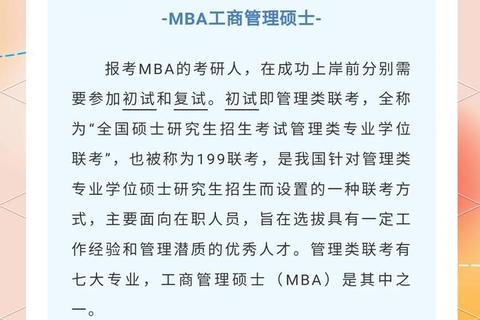Mastering Key Strategies for MBA English Exam Success
The MBA English exam, a critical component of graduate management education, demands a strategic approach that balances foundational knowledge with advanced analytical skills. To excel, candidates must navigate core linguistic competencies while leveraging targeted techniques tailored to high-stakes testing environments. This guide synthesizes evidence-based methodologies and practical insights to help aspirants unlock their full potential.
I. Core Linguistic Competencies: Building the Foundation

1. Vocabulary Mastery: Precision Over Quantity
A robust vocabulary is the cornerstone of MBA English success. Rather than memorizing exhaustive lists, prioritize high-frequency academic and business terms. Research indicates that mastering 2,000-2,500 core words (e.g., analyze, sustainable, strategic) covers over 85% of exam texts . Tools like frequency-based flashcards and contextual learning (e.g., analyzing真题例句) enhance retention. For instance, terms such as stakeholder and innovation frequently appear in case study passages and essay prompts .
Actionable Tips:
2. Grammar and Syntax: Beyond Rule Memorization
Advanced grammar structures—such as subjunctive moods and parallel clauses—are pivotal for both reading comprehension and error-free writing. For example, misinterpreting a conditional sentence (Had the company invested earlier…) can alter the meaning of a case analysis .
Common Pitfalls:
Solutions:
II. Reading Comprehension: Decoding Complexity
1. Strategic Skimming and Critical Analysis
MBA reading passages often mirror real-world business scenarios, requiring candidates to extract insights under time constraints. Key techniques include:
Data Insight:
2. Question-Type Tactics
Example:
A真题 passage discussing corporate sustainability might require inferring unstated challenges from phrases like short-term profitability constraints.
III. Writing Excellence: From Structure to Persuasion
1. Essay Frameworks: Clarity Meets Depth
High-scoring responses adhere to a三段式结构:
1. Introduction: State the thesis clearly (This essay argues that…).
2. Body Paragraphs: Use PEEL (Point, Evidence, Explanation, Link)模式. For instance, when discussing market entry strategies, cite真题案例 (e.g., Company X’s success in emerging markets) .
3. Conclusion: Reinforce the thesis with a forward-looking statement (Future leaders must prioritize…).
2. Common Writing Traps and Solutions
Pro Tip: Pre-memorize万能模板 for书信类 (e.g.,建议信) and图表作文 to save time .
IV. Integrated Preparation Strategies
1. Phase-Based Study Planning
2. Resource Optimization
V. Conclusion: From Preparation to Execution
Success in the MBA English exam hinges on a dual focus: mastering core competencies (vocabulary, grammar) and deploying tactical strategies (time management, question-specific techniques). By integrating真题分析 with disciplined practice, candidates can transform linguistic challenges into opportunities for differentiation. As the global business landscape evolves, the ability to articulate nuanced insights in English remains an indispensable leadership skill—one that begins with strategic exam preparation.
References
高频词汇分类与阅读真题分析; 宏观/微观阅读技巧; 题型解题策略; 语法结构应用; 分阶段备考规划; 写作模板与案例库.


